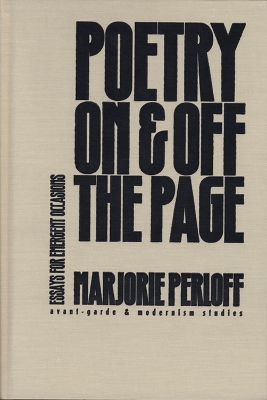Avant-garde and Modernism Studies
3 total works
Ezra Pound termed a fresh strain in Post-Modernist poetry 'Logopoeia - the dance of the intellect among words', and in this collection of essays, Marjorie Perloff examines this fresh strain in poetics. These essays focus on the poetry of Swinburne, Yeats, Stevens, Joyce, Williams, Cage, and Pound, among others. Through her analyses, the author traces a distinct direction in Post-Modernist poetry to Pound, whose legacy is present throughout this volume, even in essays not specifically devoted to him. Professor Perloff finds that the Symbolist elements that Yeats rejected - fragments, purely metrical or visual impressions, and theoretical concepts - became increasingly important to later poets. She also argues that the Romantic and Modernist cult of the personality has given way to a denial of the authoritative ego. These developments, combined with other cultural influences which Perloff identifies, such as the art of the Italian Futurists, lead to a fresh strain in poetry.
These essays share as their theme the reconsideration of the role of historical and cultural change in the evolution of 20th-century poetry and poetics. Perloff first looks at broad theoretical concerns - the evolution and contradictions of the term ""postmodernism""; the vexed relation of modernism to the primitivism ostensible inherent in it; the large-scale transformation of free verse; and the reception of poetry and poetics in the contemporary press and its cyberspace future. From this theoretical framework she then addresses individual cases - the difficult poetic language of Mina Loy; the relation of poetry and politics as exhibited by Denise Levertov and Robert Duncan; the mimetic nature of photography as understood by Roland Barthes and Christian Boltanski; the special accomplishments of John Cag's ""Mesostic"" art.
The Description for this book, Poetics of Indeterminacy: Rimbaud to Cage, will be forthcoming.

